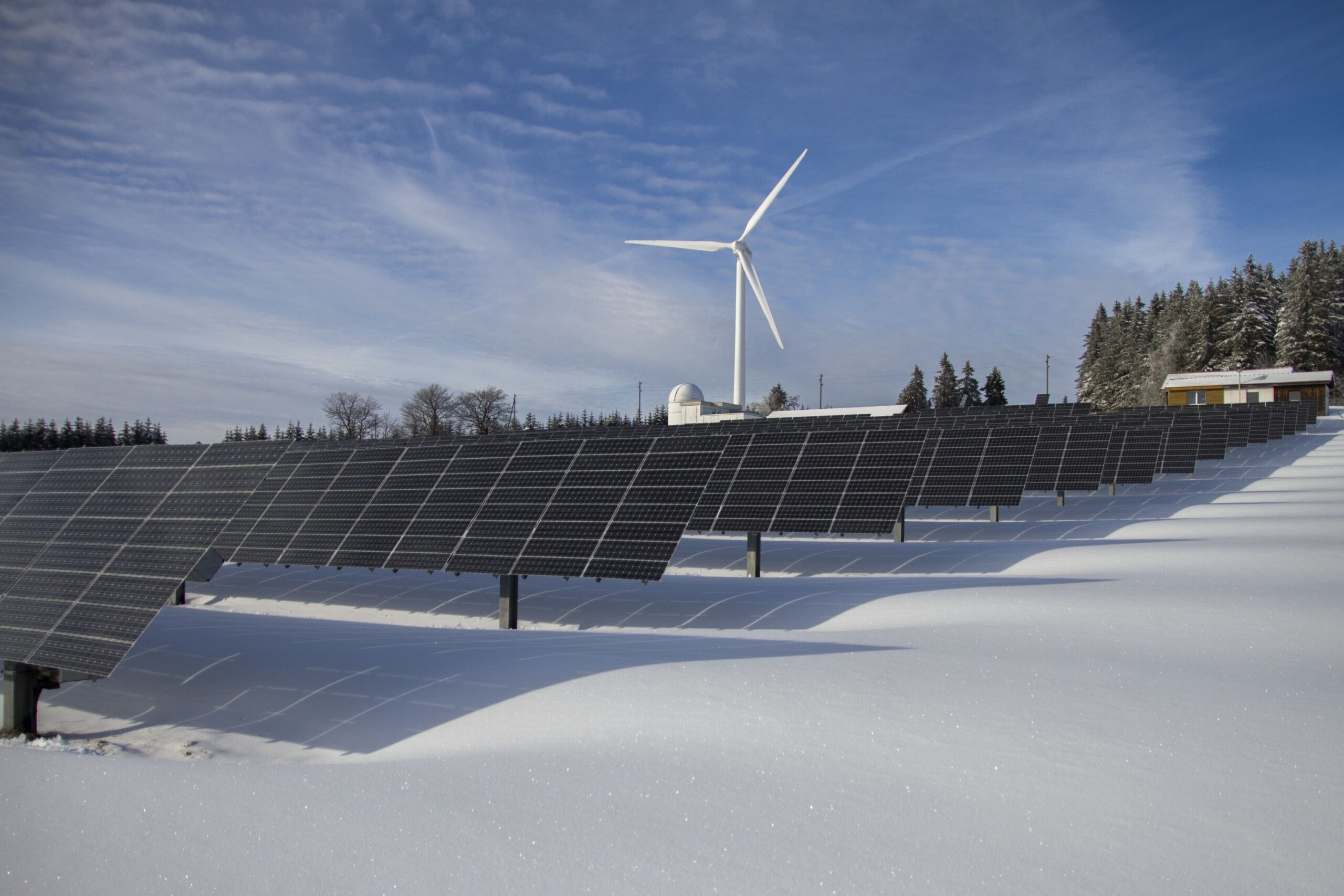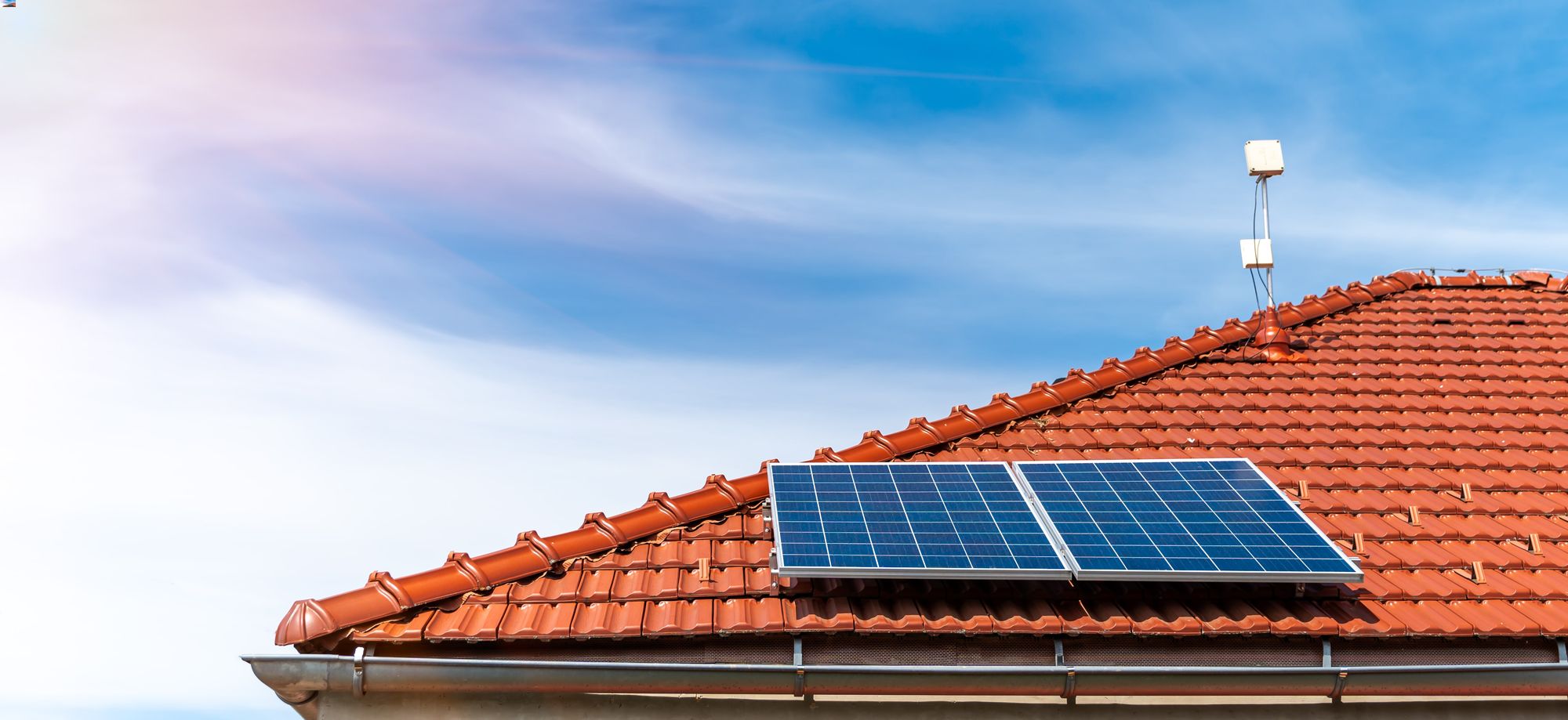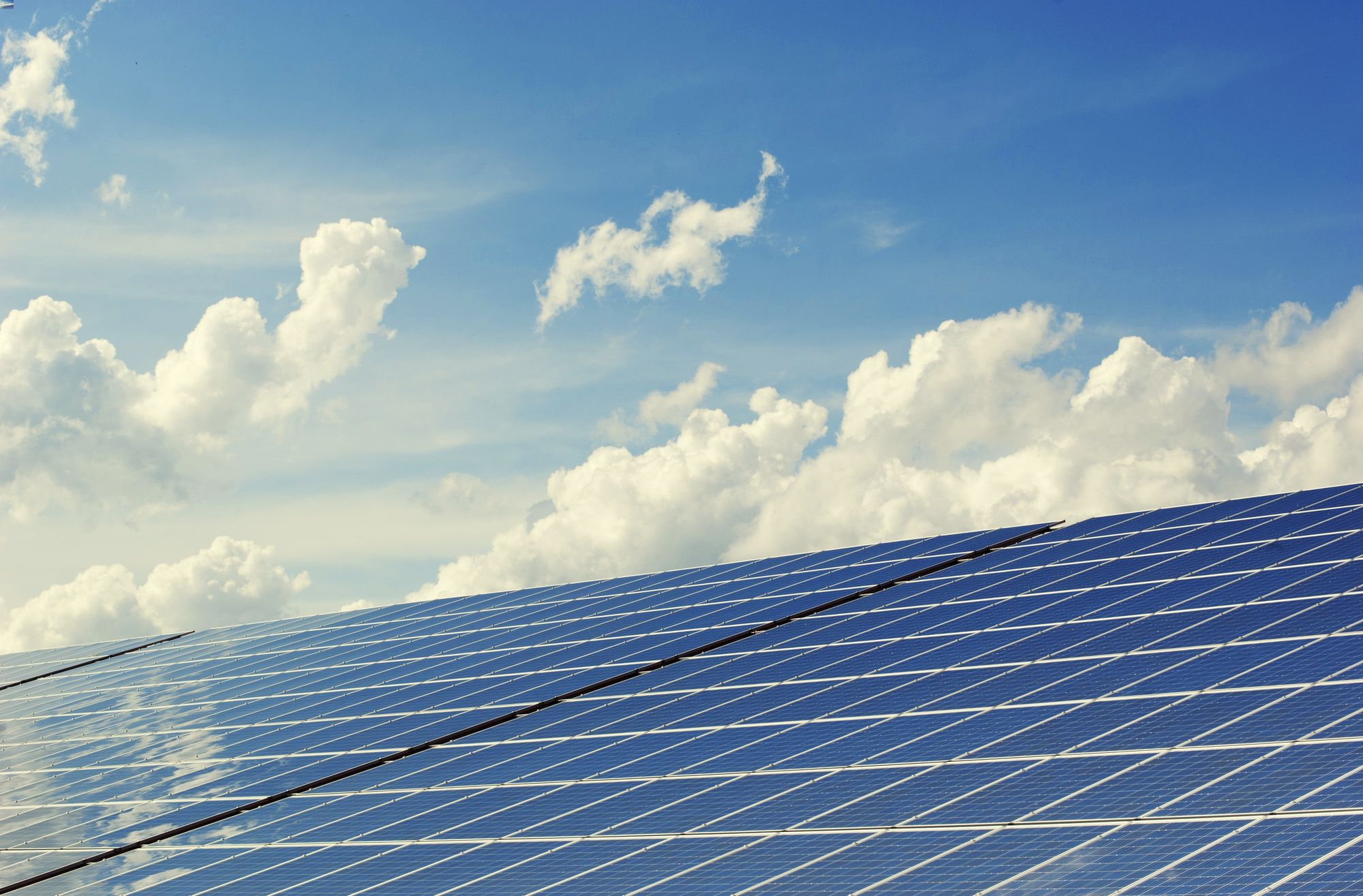
Now is the perfect moment to install solar panels. With a remarkable 82% drop in solar costs since 2010, and a corresponding rise in electricity prices, solar panels can significantly reduce your energy bills by an average of £534 per year - a substantial amount, especially in times of economic downturn.
Over 1.2 million UK households have already embraced solar panels, with an average payback period of just 10.1 years. This makes solar panel installation a smart and financially savvy decision.
In addition, comparing solar panel prices has never been easier with our assistance. By providing some basic information, our team of expert installers will provide you with free quotes to compare, ensuring that you make the best decision for your needs. solar panels installation
Get Free Solar Panels Quotes
Compare the price now by filling in this form - It takes less than 60 seconds

What’s on this page?
How do solar panels work?
It is crucial to differentiate between two primary categories of solar panels:
Photovoltaic panels which generate electricity
Solar thermal panels utilized for heating purposes
Solar Photovoltaic Panels
Solar panel systems in the UK commonly use photovoltaic (PV) systems, which directly convert sunlight into electricity. These systems are composed of solar cells made of semiconductors like silicon, which absorb the sunlight and generate electricity. The solar cells are connected electrically and assembled into a solar panel frame. By connecting multiple solar panels together, a solar array is formed. The entire solar panel system is completed by adding cabling, brackets, inverters, and other components.
The electrical conductors of the solar cell system are connected to positive and negative terminals, creating an electrical circuit. This circuit captures the electrons generated from the solar cell and produces an electric current, or electricity. The power, or wattage, that the solar cell can produce is determined by this current, together with the cell's voltage (which is generated by the cell's electric field). This process is how photovoltaic solar panels convert sunlight into electricity.
Grid-connected and Stand-alone PV Systems
Grid-connected systems use the local utility grid to ensure that you always have access to electricity. If your solar panel system generates more electricity than your household requires in a day, the excess energy can be exported back to the national grid. Conversely, if you require more electricity than your solar panels can generate, the grid can supply the additional electricity.
Stand-alone PV systems, on the other hand, do not connect to the grid. Instead, they charge a solar battery system that stores the electricity generated by your panels. This stored electricity is then used to power your appliances. Stand-alone systems are typically more expensive than grid-connected systems because solar batteries are still relatively costly. They are often used in areas that cannot be connected to a grid.
Solar Battery Storage Systems
Solar battery storage systems allow for the storage of electricity generated by solar power, which can be used during periods when solar panels are not producing electricity, such as during the evening hours. This storage technology is applicable for both grid-connected and stand-alone PV systems.
While the cost of solar battery storage systems can be quite high, ranging from £1,200 to £6,000, depending on the size and capacity, advancements in technology may lead to price reductions in the future.
If you already have a clear idea of what you want and don't want to spend any more time searching, just click the button below to receive up to three solar panel quotes. This service is entirely free, and there is no obligation to accept any of the quotes you receive.
Get Free Solar Panel Quotes
Compare the price now by filling in this form - It takes less than 60 seconds
What’s the average cost of solar panels?
For a three-bedroom house, a 3.5 kilowatt-peak (kWp) solar panel system typically starts at £5,200. On average, the cost of solar panels is £1,600 per kWp. For a two-bedroom home, it generally needs a 2 kWp system which costs around £3,300.
According to the Energy Saving Trust, a 4.9 kWp system, which is appropriate for a four or five-bedroom home, costs around £7,600.
While higher quality panels may be more expensive, their increased efficiency and power can allow your home to generate more electricity, as long as they are kept clean.
The costs and CO2 savings are based on data from the Energy Saving Trust, while the amount of solar electricity generated is derived from figures from the European Commission.
The cost of adding a solar battery
The typical expense of a solar battery for a three-bedroom house is £4,500. The price for a smaller house is typically around £2,500 while a larger property may spend £5,500. The larger the battery, the more energy it can hold, and the greater the advantages - but at a higher cost. By incorporating a solar battery, you can save an extra £219 annually on average, boost your use of solar electricity, and decrease your carbon footprint by an additional 15% – equating to an extra tonne of CO2 per year. However, considering the cost of adding a solar battery to your solar panel system, the average three-bedroom home will take an extra nine years to break even on the whole installation. As a result, we do not suggest investing in this expensive item twice over the lifespan of your solar panels.
| Property size | System Size | Number of Panels | Battery Size | Total annual savings |
|---|---|---|---|---|
| 2 bedroom house | 2 kW panel system | 6 | 4 kW | £5,752 |
| 3 bedroom house | 3 kW panel system | 10 | 8 kW | £9,920 |
| 4+ bedroom house | 4 kW panel system | 14 | 9.5 kW | £13,088 |
Kindly be advised that the costs provided are only approximations and are derived from typical industry rates. Therefore, they may not precisely reflect the actual fees charged by a solar panel installer. If you desire a more accurate estimate of the expenses involved, please complete the brief form and communicate with certified solar panel vendors in your area.
Get Free Solar Panel Quotes
Compare the price now by filling in this form - It takes less than 60 seconds
Factors Affecting Solar Panel Costs in the UK
The actual cost of setting up solar panels on your individual property will be subject to the subsequent factors:
System Size
Solar panel systems are available in different sizes, and selecting the appropriate size depends on the dimensions of your home and your personal electricity usage needs. In short, larger solar panel systems come with higher installation costs. For instance, a system with an average size of 4kW would require approximately £6,000 for installation. Additionally, it's worth mentioning that typically, the cost per kW reduces as the size of your system increases.
Type of Panels
There are three primary varieties of solar panels employed for residential purposes: monocrystalline, polycrystalline, and thin-film solar panels. Monocrystalline panels offer the greatest efficiency, albeit at a more expensive price point. If cost is a significant consideration for you, then polycrystalline panels may be a more appropriate option. Typically, the cost of monocrystalline solar panels with higher efficiency is around £1 to £1.50 per watt, while polycrystalline panels cost approximately £0.90 to £1 per watt.

Installation Process
The installation process is another element that influences the overall expense of solar panels. You can either install the solar panels on your own or engage a professional for the job. If you opt for a DIY installation, you will need to consider the number of panels, their angle, and the durability of your roof.
Nonetheless, even if you install the solar panels yourself, it's important to note that you'll need to engage a certified professional if you wish to take advantage of the Smart Export Guarantee, which allows you to earn money by exporting energy back to the grid.
Additional Components to the System
Incorporating supplementary components into your solar panel system during installation may lead to a higher equipment cost, but it can decrease installation expenses. For instance, if you're contemplating installing a solar battery storage system or including features such as pigeon proofing for your panels, it's recommended to bundle them with your panel installation to decrease your overall installation expenses.
Location and Labour Costs
The installation cost of solar panels usually encompasses labour expenses, which can vary depending on the location and the hourly rate of labour in that particular region. Typically, the cost ranges from £300 to £500 per day for an individual, and this amount may be higher or lower based on your location within the UK.
Get Free Solar Panel Quotes
Compare the price now by filling in this form - It takes less than 60 seconds
Additional Costs
After utilizing the calculator and provided information to determine the required number of solar panels and whether or not a solar battery should be included, it is important to take into account three potential future expenses.
Solar panel inverter
The conversion of electricity from direct current (DC) to alternating current (AC) is an essential process in any solar panel system, and it is the solar inverter that performs this function.
Although solar panels typically last 25-30 years, you will need to replace your inverter after 10-15 years. The cost of a new inverter ranges from £500 to £1,000.
Maintenance and repair
Solar panels are highly durable and don't require frequent repairs. They don't have any moving parts and are designed to withstand severe weather conditions like hailstones the size of golf balls. However, accidents can still occur, and your solar panels may be damaged by falling trees, extreme weather, or other unexpected incidents such as stray cricket balls or animals gnawing on wires.
In the event of such mishaps, it's recommended to hire a professional solar panel repair company. Attempting to fix the panels yourself can be dangerous and may end up costing you more in the long run.
Minor damages can be repaired for as low as £80, while more extensive repairs may cost up to £1,500.
Cleaning
In the UK, solar panels are usually kept clean by frequent rainfall, but bird droppings can reduce their efficiency and if your solar panels are located under a TV aerial, birds may perch on them, causing further dirtiness.
If you notice your solar panels becoming dirty, it's important to clean them. You can either hire a professional who will charge around £100 or follow our cleaning guide and clean them yourself.
How much will you save with solar panels?
On average, solar panels can reduce your electricity bill by 46%, resulting in annual savings ranging from £320 to £750 for most homes.
For an average three-bedroom household, this equates to an annual saving of £449 by utilizing only half of the solar power produced. The remaining half is sent back to the grid, unless you have a solar battery or utilize the Smart Export Guarantee (SEG) scheme.
By selling your excess solar-generated electricity back to the National Grid through an SEG supplier, you can earn up to 15p for every kilowatt hour (kWh) sold. This could result in an additional £219 in savings if you have a solar battery, or up to £85 per year through SEG payments for the typical three-bedroom household. In total, these savings from reduced electricity bills and SEG revenues could amount to £534 per year.
The amount of money you can save with solar panels is determined by various factors, such as your household's electricity consumption, the timing of appliance usage during the day when your panels are active, the efficiency of your solar panel type, and the potential income generated from solar panel funding schemes.
Maximising the use of your appliances such as washing machines and dishwashers during the day when the sun is shining and your solar panels are active can lead to increased savings on your energy bills. These minor adjustments can result in substantial cost reductions.
Get Free Solar Panel Quotes
Compare the price now by filling in this form - It takes less than 60 seconds

When will you break even on solar panels?
On average, it takes 10 years for the typical household to recover the cost of installing solar panels. After that point, solar panels usually continue to function for at least another 15 years, allowing a three-bedroom household to earn a total profit of £7,900 through savings on energy bills and revenues from the Smart Export Guarantee scheme.
Is there any funding available for solar panels?
Government schemes such as the ECO4 scheme and the Smart Export Guarantee (SEG) provide funding options for solar panels.
If you qualify for certain benefits and have an electrically heated home, you may be eligible for free solar panels through the ECO4 scheme.
Moreover, the SEG scheme mandates large energy companies to pay you for the surplus solar electricity you generate but do not use.
In addition, residents of Scotland can avail themselves of the Home Energy Scotland Grant and Loan, which provides loans up to £6,000 at zero interest with a repayment period of at least five years.
Find the right Solar Panels installer
If you're looking to purchase Solar Panels for your home, we can simplify the process for you. Rather than spending time researching various suppliers, all you need to do is fill out the contact form. Our trusted suppliers will then provide you with free, no-obligation quotes to assist you in making your final decision.
Get Free Solar Panel Quotes
Compare the price now by filling in this form - It takes less than 60 seconds












